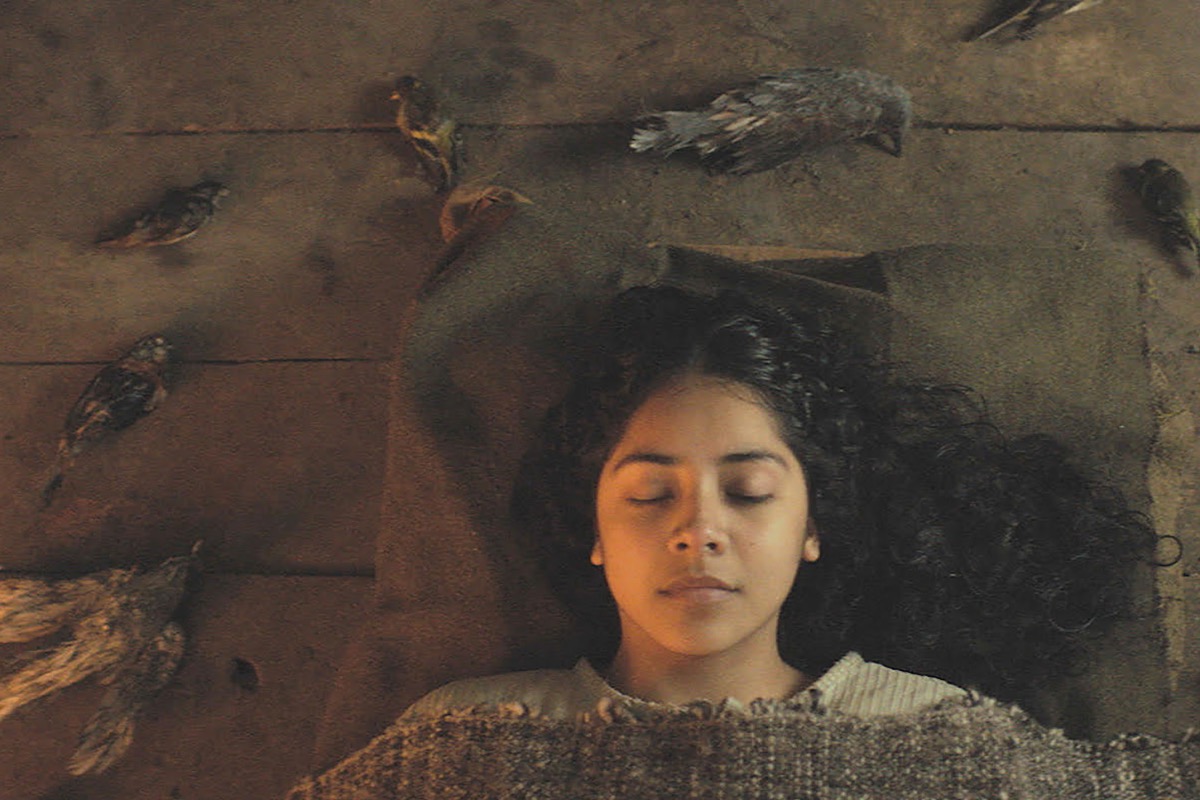

Catarina Oliveira appears in ‘Sorcery’ by Christopher Murray, an official selection of the World Dramatic Competition at the 2023 Sundance Film Festival. (Courtesy of Sundance Institute)
Based on a true story, the central conflict in the 2023 Sundance film Sorcery is colonialism. The film is set on Chile’s Chiloé Island in 1880 and follows a 13-year-old Huilliche girl, Rosa, as she seeks revenge after a white man kills her father. The newly arrived Chilean government offers her no justice, so she turns to La Recta Provincia, a secret Indigenous society that practices the sorcery that gives the film its title.
https://www.youtube.com/watch?v=3CsonZ85OAs
Latino Rebels spoke with the film’s co-writer and director, Chilean filmmaker Christopher Murray, who described Sorcery as depicting “a battle of powers.” He based the film on a real case “where there was a trial against an organization of sorcery,” he said. “It was persecution from the Chilean state against this organization, (which was) a problematic situation, because, of course, all of the parts of the organization were Indigenous.”
Sorcery tells the story of this trail: what leads up to it, how it plays out in the court, and what happens as a result, “through the eyes of someone that’s in between, traveling between the worlds.”
When we meet Rosa, she’s a Christian domestic worker in the home of German colonizers. The patriarch’s cruel murder of her father, in front of her no less, radicalizes Rosa, sending her in search of a world order that values her and her humanity.
To find his lead actress, Murray issued a local casting call in the south of Chile where his film is shot. There he met Valentina Véliz Caileo, who “even though she had never (acted in) film or on camera, she had a natural talent, magnetism, look in her eyes—a tone. There was something really magical in her.”
Indeed Véliz Caileo shines in a film in which her character is driven on two classic but conflicting journeys: one of self-discovery and empowerment, the other of being consumed by revenge. Murray says that Véliz Caileo herself has Indigenous roots and a Catholic upbringing. Beginning to question Catholicism, she shared something essential with her character, that in-between-ness that defines much of Rosa’s journey.
To echo the ambiguity of Rosa’s world, Murray uses a limited palette in his film—it’s almost entirely grays, browns, and greens. The visuals reflect the mist, sea, and trees of Chiloé Island, where Murray’s family has long ties. It also depicts “the mystery of that area,” hinting at more below the surface as Rosa works to find new pathways to power.
And find them she does, although they turn out to be unsettling, to say the least. La Recta Provincia uses the human skin of past sorcerers, with Rosa settling herself under a newly cut piece at one point like it’s a blanket. The human hides grant them the ability to “go out from their bodies… change skin,” as it were, in a practice that Murray describes as “strictly from that area (of) Chile and… (not) something that is part of the general Indigenous community.”
While that taboo may turn some stomachs, it’s Rosa’s quickness to use the families of her adversaries that really brings her into a morally questionable area. Endangering children —including one infant— is wrong, no matter the cause.
So while the film’s sympathies certainly lie with Rosa, Sorcery neither portrays her as a saint nor a savage. Rather, it portrays her as a flawed person in a deeply unjust situation. For modern audiences, it may be tempting to justify her acts of resistance as valid because we know what happens next, with the Chilean government exerting its control over the Huilliche people.
But that storyline is too simple and easy. Murray says he made the film to “make people think about this violent process of colonization that we sometimes think is something from the past. But it’s still going on, and not only in terms of territorial aspects but also in terms of how the cultures, the beliefs, the emotions are built.”
Indigenous people and societies persist. They continue resisting, and Sorcery is a story of that resistance.
***
A writer and activist, Cristina Escobar is the co-founder of latinamedia.co, uplifting Latina and gender non-conforming Latinx perspectives in media. She’s a member of the Latino Entertainment Journalists Association and writes at the intersection of race, gender, and pop culture. Twitter: @cescobarandrade


